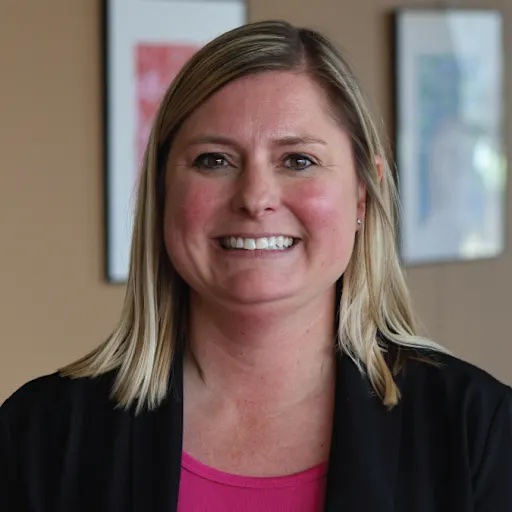A fiscal 2004 tax rate of 90.5 cents per $100 of assessed valuation recently was established by the Mehlville Fire Protection District’s Board of Directors.
The fiscal 2004 rate of 90.5 cents per $100 is 1.5 cents less than the current rate of 92 cents and is expected to generate about $638,000 more in tax revenue compared to 2003.
Although the projected tax rate decreased from the 2003 tax rate of 92 cents per $100 of assessed valuation, the district’s revenue is expected to increase by about 3 percent because of increased assessed valuation.
The assessed valuation for the district increased by more than $100 million, from 2003’s amended assessed valuation of $1,741,160,404 to the 2004 projection of $1,841,932,528.
Revenue from real estate taxes is projected to increase by 6 percent to more than $13 million in 2004 from more than $12 million this year.
The tax rate had to be decreased because 90.5 cents is the maximum amount allowed given the new assessed valuation, according to Missouri’s Hancock Amendment, which limits the amount of taxes that can be collected without voter approval.
Board Chairman Tom O’Driscoll and Treasurer Dan Ottoline Sr. voted to approve the tax rate Aug. 25. At that meeting, the two also voted to appoint David Gralike to the board to fill the seat formerly held by former chief Joseph Gaterman, who lost his battle with cancer April 29.
Gralike was scheduled to be sworn in Monday night — after the Call went to press.
The approved tax rate of 90.5 cents per $100 of assessed valuation breaks down as follows:
General fund — 55.1 cents.
Ambulance fund — 21.5 cents to provide emergency ambulance service in the district.
Pension fund — 9.3 cents, which is a half-cent less than the current fiscal year.
Alarm fund — 4.6 cents to provide central fire and emergency dispatching service in the district.
The final 2004 budget will be presented in December, but the district’s preliminary budget presented to and approved by the Board of Directors projects total expenditures of $18,536,464 with estimated revenues of $19,132,627 — a surplus of $596,163.
“This is a draft, not a final document. There probably in all likelihood will be some modifications to this … The department heads still need to do some fine tuning on this and eliminate anything that might be deemed nonessential to the operating of the district,” district Comptroller Jeff Geisler told the board.
Geisler said he did not anticipate change in the revenue besides in ambulance billing and inspection fees. More experience with the ambulance billing policy could help district officials “get a better handle” on the revenue being collected. Inspection fees, he said, are being reviewed in relation to other districts and may be changed.
“It’s been a period of time, I guess, since we have looked at that, and, in theory, the inspection office should generate enough income to cover its cost and presently it’s not, so we’re going to look at reviewing that and make any adjustments that may need be …,” Geisler said.
Total expenditures for the district in 2004 are projected to increase from 2003’s amended budget by about $652,000 — from $17,900,106 in 2003 to $18,551,891 in 2004.
Increases are shown in the employee welfare — health insurance — line item by 17 percent to $1,806,756 as well as for workers’ compensation insurance by 23 percent to $753,034.
“Whenever we had gone out for bids for health insurance, they pretty much advised us that we can expect a 20 percent increase in the upcoming year, and that is included in this budget, so you will see that overall, the increase is about 17 percent,” Geisler said.
“… The workers’ comp insurance, which is another big-ticket item, you’re going to see we’re looking at a 23 percent increase there. We’ve had some bad experience with work-related injuries, and they’ve pretty much told us we can expect a 25 percent increase on that line item,” the comptroller said. “We should get, the closer we get to December, we’ll get a better handle on what that number’s going to be, but that is the best number we have at this point, which does represent a 23 percent increase over the previous year.”
The district’s 2003 election expense line item of $34,760 decreased 100 percent in the 2004 budget projection. The death benefit payout budget also decreased 100 percent by $26,000, as did the office furniture and equipment line item by $11,900.
Personnel costs for 2004 basically do not increase, the comptroller said, noting a slight increase for longevity pay and step increases are included, but no additional costs to salaries.
“Overall on this page, which includes our general overhead, admin and personnel costs, we’re looking at a 2 percent increase over our previous level, which is pretty small in comparison — just enough to keep up with the consumer price index, I would say, for our overall costs,” Geisler said.
Within the general fund, the 2004 budget projects a deficit of $38,030. The district would not go into the red, however, but would dip into its reserve funds.
Geisler said he anticipates the general fund balance will change to zero or a positive excess over revenues before the budget is presented back to the board. Even given the current budget projections, he said the general fund reserve has about 10 months left.
For the sick-leave reserve, Geisler said that if everyone eligible to retire in 2004 does retire, sick leave payouts may total $300,000 and the district may see a deficit of $240,000 in that reserve fund.
“I believe that will bring the sick leave fund down to about an 83 percent funding level at that point in time. I don’t expect any changes in sick leave reserve numbers that we’re showing there,” he said.
The death benefit reserve fund should result in a net increase of $12,000 from accumulated interest, and the ambulance fund should see a surplus of $571,152. Geisler said the ambulance fund could be adjusted with a larger number later in the year. Otherwise, the ambulance fund has about 10 months of reserve left, he said.
The alarm fund is projected to have an excess of $317,625 at the end of 2004. That number could change when the district learns what the upcoming fees will be from South County Fire Alarm, Geisler told the board.
The pension fund is projected to have a deficit of $26,584. “That number will probably be — it’s a tentative number, the best number we have at this point, until we get a handle on what the actual pension contribution will be for the minimum in order to fund the pension plan, that number’s subject to change,” Geisler commented.








